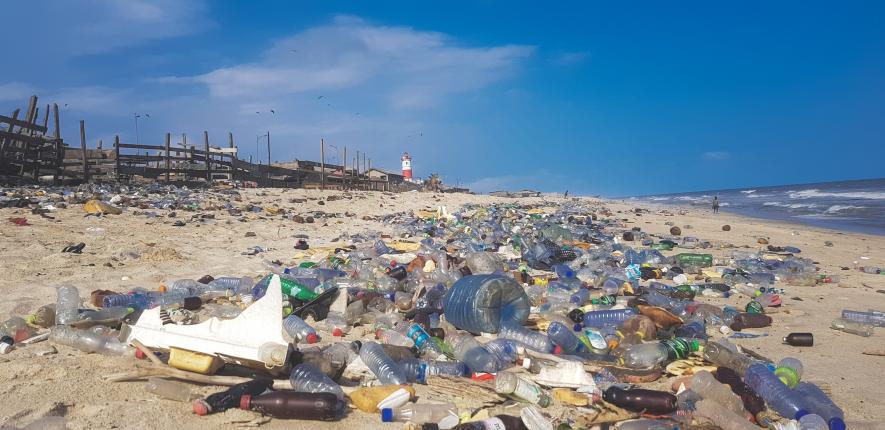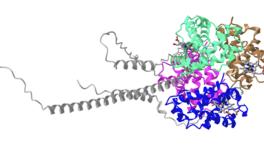Enzyme Engineered by AI Devoured Entire Plastic Tray Within 48 Hours: Study

Representational image.
Plastic is an environmental menace as it does not degrade by itself, at least within any relevant time scale. Scientists of the world have been researching is to find out and, if possible, develop some enzyme which can digest the ultra-durable material.
The hunt for plastic degrading bacteria is an aspect that scientists have been busy with for decades. Now, a recent research shows that scientists have developed an enzyme that can digest plastic at a faster pace. The findings have been published in Nature recently.
Plastic is characterised by Durability and being extremely long lasting. The recycling efforts undertaken currently are grossly insufficient to have even little impact on the mountains produced by these long durable materials. Moreover, plastics are making their entry to the oceans and thus posing a threat to the marine ecosystem.
The team of researchers of University of Texas at Austin used tools of artificial intelligence (AI) to identify proteins, which are potentially effective in decomposing plastic and led to the development of FAST-PETase (functional, active, stable and tolerant PETase). The enzyme works on a plastic known as the polyethylene terephthalate (PET), which is used in clothing, electrical waterproofing and also packaging. Importantly, PET accounts for 12% of global plastic waste
THE HISTORY
Six years ago, while working on debris of a plastic bottle recycling plant, scientists discovered a bacterium that can degrade PET. This bacterium has two enzymes that degrade the polymer (plastic is essentially a polymer) into its basic units, that is the monomers. A polymer is any molecule which is made up of repetition of its basic units of monomers. The bacterial enzymes degrade the polymer first into monomers and then into another compound called the ethylene glycol and terephthalic acid.
Among the two enzymes, one enzyme in particular, the PETase has been a target for protein engineering efforts. Notably, the naturally occurring PETase is stable at lower temperature and its degradation rate is slower and protein engineering efforts have been targeted to overcome these shortcomings.
The team of Texas engineered the PETase that can degrade 51 different PET products and importantly this includes whole plastic bottles and containers. The team took the advantage of the specific way of using AI, which is called neural network. This technique helped them decide how to modify the PETase for faster working and achieving better stability at higher temperatures.
From among the thousands of possible tweaked structures of the enzyme, the researchers zeroed on the current form that proved much effective than the previously developed ones. At a temperature as high as 50 degree Celsius, the engineered enzyme was found to be twice as active in degrading a sample of a container made up of PET than another PETase engineered previously. The newly engineered PETase degraded a plastic cake tray entirely in 48 hours, the researchers found.
The enzyme can also make a new plastic item from the degraded waste. The FAST-PETase is 2.4 times more active than natural PEtase at 40 degree Celsius and 38 times more active at the temperature of 50 degree Celsius.
Commenting on the findings, Bian Wu of Chinese Academy of Sciences said, “ This study proved the machine-learning method is useful in enzyme engineering. The algorithm, he points out, managed to uncover certain modifications that were ignored by other methods.” Notably, Wu’s team also developed a different modified PETase in 2021. However, Wu pointed out one caveat, that is the high temperature of 50 degree Celsius required for optimum activity of the enzyme.
Get the latest reports & analysis with people's perspective on Protests, movements & deep analytical videos, discussions of the current affairs in your Telegram app. Subscribe to NewsClick's Telegram channel & get Real-Time updates on stories, as they get published on our website.
























